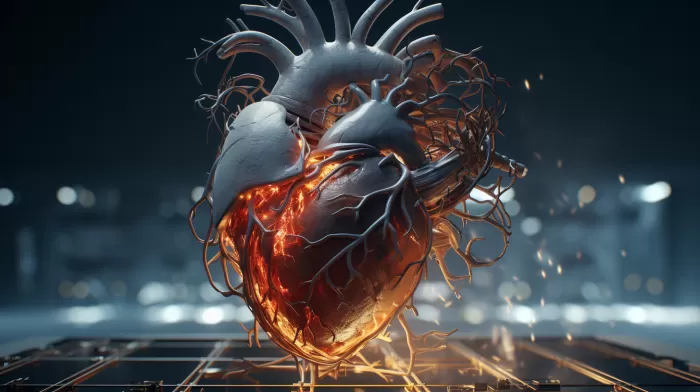Low-carb diets like paleo, keto, and carnivore have gained popularity for their potential health benefits such as weight loss and improved inflammation, cholesterol, blood sugar, and insulin levels. But, health professionals have been expressing concerns about the high levels of saturated animal fat in these diets. High-fat diets are linked to certain types of cancer, heart disease, metabolic syndrome, and an unhealthy gut environment.
Research has been conducted to study the impact of a high-fat diet on the heart. One team discovered a cellular mechanism set off by a high-fat diet that damages the heart. The study found that consuming a high-fat diet could activate a heart response that causes destructive growth of heart cells.
Researchers fed mice a high-fat diet and examined its effect on the oxidative stress levels of heart cells. Their findings revealed that the heart cells had twice the amount of oxidative stress, causing them to grow up to 1.8 times bigger. This is a result of cardiac hypertrophy, a condition associated with heart disease. The study focused on a protein called Nox2, which researchers believe is associated with increased oxidative stress in the heart. The research indicates that the Nox2 protein becomes overactive, leading to oxidative damage and causing cardiac hypertrophy.
Mice that were fed a high-fat diet had twice the amount of Nox2 activity, leading to an increase in reactive oxygen species (ROS) production. As a part of the study, researchers used three experimental treatments known to lower Nox2-related ROS production. All three treatments showed promise in reducing the damaging effects of ROS on the mice’s hearts.
To take advantage of the healthier aspects of low-carb diets without the high levels of saturated fats, it’s crucial to avoid processed, packaged foods high in sugar, salt, and preservatives. Instead, focus on eating moderate amounts of beans, legumes, whole grains, low-carb vegetables, and fruits. These foods are rich in fiber, essential for good gastrointestinal health and balancing blood sugar.
When it comes to fatty diets, research has indicated antioxidant resveratrol might help defend against oxidative damage. Consider replacing high-fat red meats with poultry and fish, eating red meats only occasionally and keeping portion sizes small. It’s essential to maintain a balanced diet filled with essential nutrients to avoid potential damage caused by high-fat diets.



